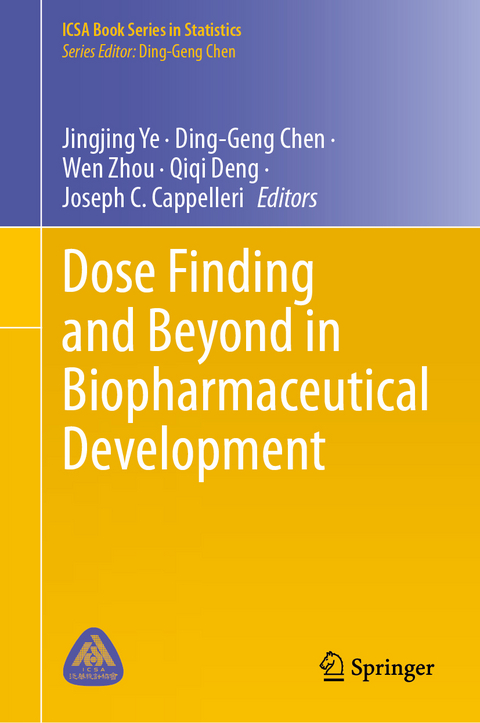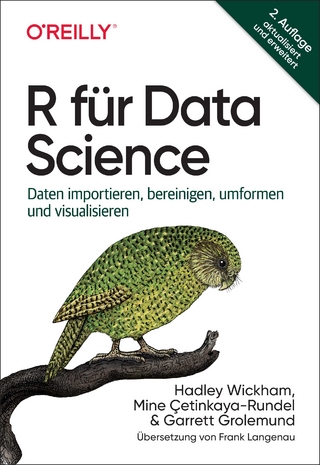
Dose Finding and Beyond in Biopharmaceutical Development
Springer International Publishing (Verlag)
978-3-031-67109-8 (ISBN)
This book covers topics in 2 parts: 1) Review of FDA Guidance, 2) Novel Designs and Analyses. While covering basic principles of dose finding, this book details advancements made in drug development.
Finding the right dose(s) is one of the most important objectives in new drug development. In Phase I clinical development, one of the objectives is to escalate test doses from low to high. The low doses should be safe, then escalate up to the maximally tolerable dose (MTD). Phase clinical trials then lower test doses to the minimal efficacious dose (MinED). Dose range of a study drug can be thought of as the doses between MinED and MTD. From this dose range, one or a few doses are selected for Phase confirmation. In practice, dose finding is a very difficult in every phase of clinical development for new drugs.
The editors brought distinguished researchers and practitioners in biopharmaceuticals and universities, to discuss the statistical procedures, useful methods, and their novel applications in dose finding. The chapters in the book present emerging topics in dose-finding and related interdisciplinary areas. This timely book is a valuable resource to stimulate the development of this growing and exciting field in drug development.
Jingjing Ye is a Fellow of American Statistical Association and is currently an executive director and global head of Data Science and Digital Innovations (DSDI), with Global Statistics and Data Sciences (GSDS) in BeiGene. She leads a global team with diverse background supporting business functions in R&D and outside R&D for their data, analytics and technology support. She has over 17 years' experience in pharmaceutical industry and US FDA, with focus in cancer drug discovery and development. Her statistical and regulatory experience expands full spectrum on patients' treatment journey from diagnosis, treatment, to living with the condition. Her main research interest is the innovative trial designs and analyses related to small populations, e.g., pediatric and rare diseases. She received her PhD degree in statistics from University of California, Davis and BS in applied mathematics from Peking University.
Ding-Geng Chen is a fellow of the American Statistical Association and is currently the executive director and professor in biostatistics at the College of Health Solutions, Arizona State University. He is also an extraordinary professor and the SARChI in biostatistics at the University of Pretoria, an honorary professor at the University of KwaZulu-Natal, South Africa. Dr. Chen has more than 200 referred professional publications and co-authored and co-edited 35 books on clinical trial methodology, meta-analysis, data science, causal inference, and public health research.
Wen Zhou is an Associate Professor in the Department of Statistics at Colorado State University and a faculty in the Department of Biostatistics and Informatics at Colorado School of Public Health. His research area includes high dimensional inference, statistical genomics and genetics, network analysis, robust statistics, and causal inference. Currently, he is serving as the associate editor for Biometrics, Journal of Multivariate Analysis, Statistica Sinica, as well as the Co-editor in chief of the Journal of Biopharmaceutical Statistics.
Qiqi Deng is a Director in Clinical Biostatistics at Moderna. Her main research area includes hypothesis testing and modeling in dose finding, adaptive design, and pragmatic considerations in applying innovative methodology into real clinical studies. She publishes on wide array of statistical topics in her main area and beyond, e.g. multiplicity adjustment, Bayesian statistics
Joseph C. Cappelleri is an executive director of biostatistics at Pfizer Inc, his employer since June 1996, and is the recipient of the company's Craig A. Saxton Clinical Development Excellence Award. He has co-authored approximately 1,350 external presentations and 650 publications on clinical and methodological topics, including on regression discontinuity designs, meta- analysis, and health measurement scales. Dr. Cappelleri is the lead author of the book Patient-Reported Outcomes: Measurement, Implementation and Interpretation and has co-authored or co-edited four other books (Statistical Topics in Health Economics and Outcomes Research, Phase II Clinical Development of New Drugs, Design and Analysis of Subgroups with Biopharmaceutical Applications, A Practical Approach to Quantitative Validation of Patient-Reported Outcomes: A Simulation-Based Guide Using SAS).
Emerging Topics in Dose-Finding and Beyond.- Understanding FDA Guidance On Dosage Optimization For Oncology Therapies.- FDA Project Optimus: The "Paradigm-Shifting" Initiative for Oncology Drug Development.- Challenges and Practical Guidance on the Implementation of Novel Oncology Dose Escalation Designs.- Challenges and Practical Guidance on the Implementation of Novel Oncology Dose Escalation Designs.- Monotonic Dose Response Assumption and Curve-Free Designs for Phase I Dose Finding Trials.- Dose Selection with 2-in-1 Design.- A Rank-Based Approach to Improve the Efficiency of Inferential Seamless Phase 2/3 Clinical Trials with Dose Optimization.- Comparing MCP-MOD and Ordinal Linear Contrast Test in Dose Finding Clinical Trials: A Thorough Examination.- Patient-Reported Tolerability in Drug Development.- Endpoint Development and Validation.
| Erscheinungsdatum | 30.10.2024 |
|---|---|
| Reihe/Serie | ICSA Book Series in Statistics |
| Zusatzinfo | XVII, 254 p. 43 illus. |
| Verlagsort | Cham |
| Sprache | englisch |
| Maße | 155 x 235 mm |
| Themenwelt | Informatik ► Datenbanken ► Data Warehouse / Data Mining |
| Informatik ► Theorie / Studium ► Künstliche Intelligenz / Robotik | |
| Mathematik / Informatik ► Mathematik ► Wahrscheinlichkeit / Kombinatorik | |
| Schlagworte | clinical research • Dose-finding designs • dose response clinical trials • drug development • patient-centered research • Patient-reported outcomes • Precision medicine • Project Optimus |
| ISBN-10 | 3-031-67109-0 / 3031671090 |
| ISBN-13 | 978-3-031-67109-8 / 9783031671098 |
| Zustand | Neuware |
| Informationen gemäß Produktsicherheitsverordnung (GPSR) | |
| Haben Sie eine Frage zum Produkt? |
aus dem Bereich


